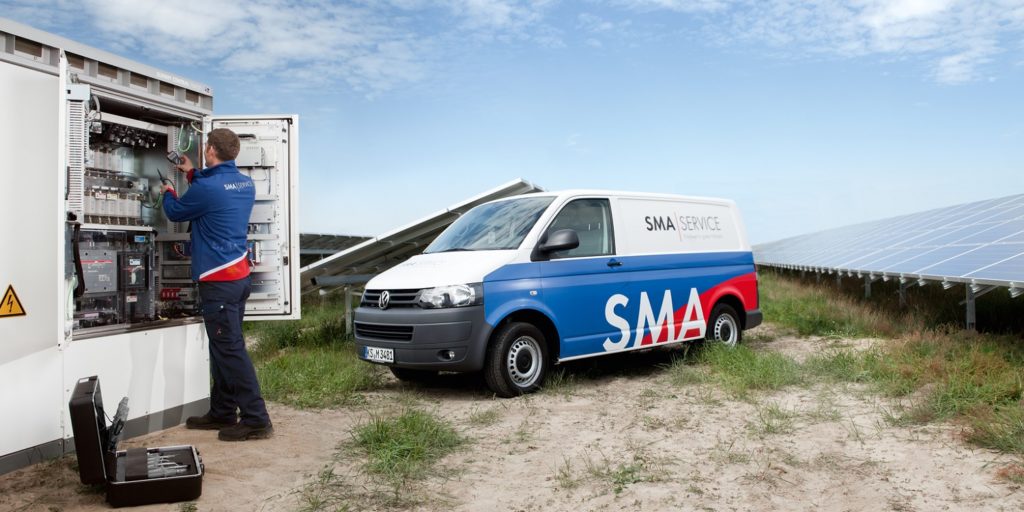SMA Technology AG has sold 4.3 GW of inverters in the first half of 2018 – 500 MW more than in the first half of 2017. The company reports that its revenues closed at €394.6 million, marking a 3.5% increase.
Over the last year, its net income increased from €8.8 million to €11.2 million. EBITDA, meanwhile, increased from €29.2 million to €40.9 million, due to particularly beneficial extraordinary effects in the first half of 2018.
“SMA recorded a positive business performance in the first half of 2018, particularly in Asia and Europe,” said SMA CEO, Pierre-Pascal Urbon. These regions were said to have had a significant impact on revenue growth. SMA did, however, struggle with a general shortage of electrical components, and ensuing production slow downs. “For the second half of the year, we expect an improvement in the delivery situation and higher sales,” he added.
SMA confirmed its previously stated guidance for the current business year. As such, the company expects revenues to reach €900 million to €1 billion, and an EBITDA in the range of €90 million and €100 million. It highlighted, however, that these estimates are based on the assumption that EPCs will not postpone their projects, in an attempt to benefit from the currently falling module prices – something that analysts are anticipating. Also, they assume an improvement in the supply of electrical components.
Module price decreases are occurring as a result of China's announcement to significantly reduce installations this year. “The reduction in PV expansion targets and feed-in tariffs in China, which completely surprised all market participants, will impact global demand,” said Urbon with regards to Beijing's announcement from May 31.
Thus, he expects growth of 7%, reaching €7.6 billion, by 2020 in the markets accessible to SMA. Previously, SMA’s board assumed €9.2 billion. With the shrinking market, the company also expects continued price pressure, but with its product innovation, it has found an answer to this issue, it said. “In addition, our expertise in energy management and the integration of battery storage systems will help us enter the higher-margin systems and service businesses,” Urbon concluded.
This content is protected by copyright and may not be reused. If you want to cooperate with us and would like to reuse some of our content, please contact: editors@pv-magazine.com.




By submitting this form you agree to pv magazine using your data for the purposes of publishing your comment.
Your personal data will only be disclosed or otherwise transmitted to third parties for the purposes of spam filtering or if this is necessary for technical maintenance of the website. Any other transfer to third parties will not take place unless this is justified on the basis of applicable data protection regulations or if pv magazine is legally obliged to do so.
You may revoke this consent at any time with effect for the future, in which case your personal data will be deleted immediately. Otherwise, your data will be deleted if pv magazine has processed your request or the purpose of data storage is fulfilled.
Further information on data privacy can be found in our Data Protection Policy.